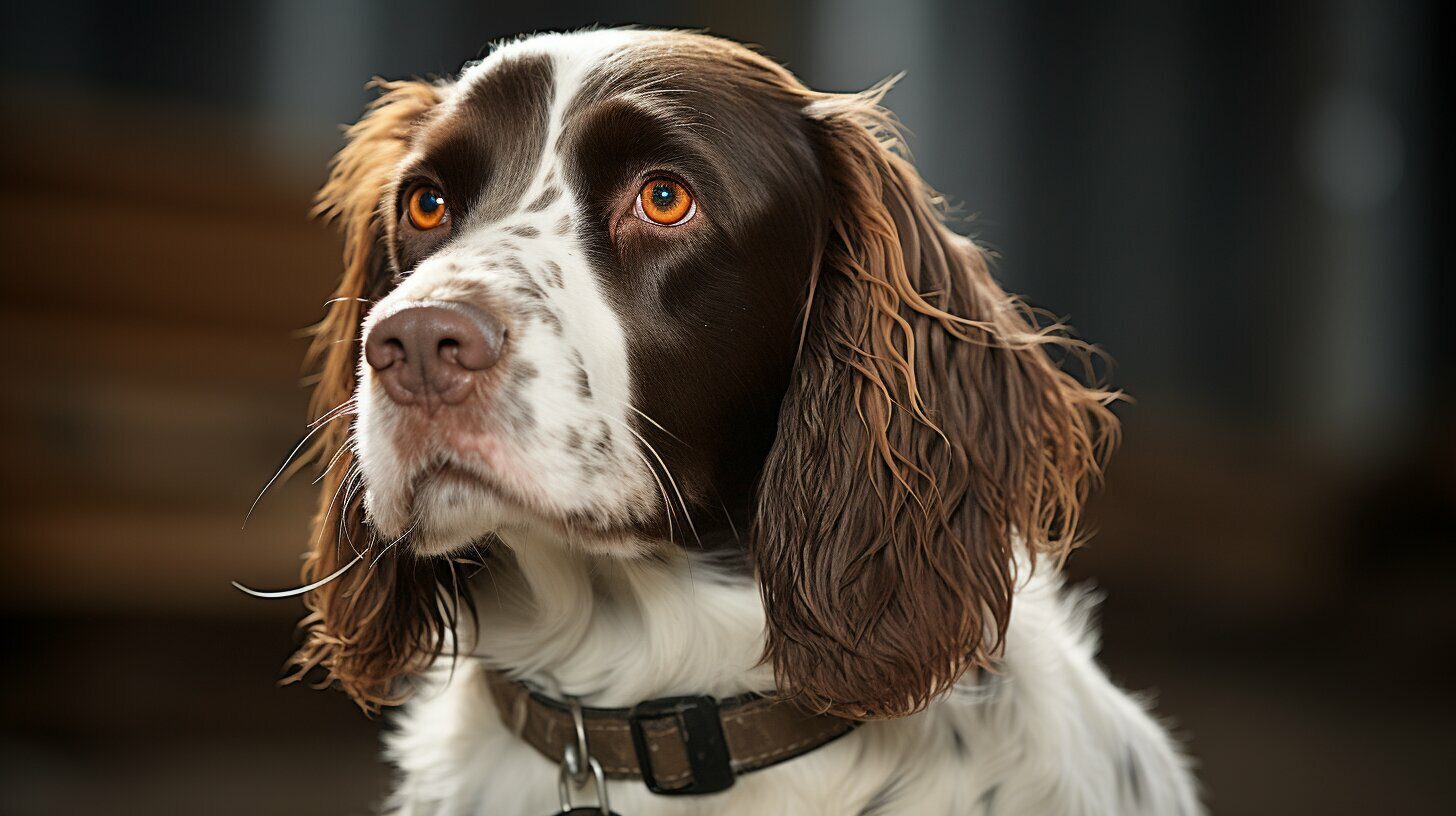
Are you considering adding a Dutch Shepherd to your family? These versatile and intelligent dogs are known for their loyalty, intelligence, and high activity levels. But before you bring one home, it’s important to understand the costs associated with owning a Dutch Shepherd in the United States. In this comprehensive guide, I will break down the factors that influence Dutch Shepherd prices and provide you with valuable information to help you find a reputable breeder.
Dutch Shepherd Price: $1,000 to $2,500
- Dutch Shepherd prices can vary depending on factors such as age, pedigree, and location.
- Some Dutch Shepherds with exceptional pedigrees can cost as much as $60,000 to $85,000.
- Factors like coat color and the breeder’s location can influence the price of a Dutch Shepherd.
- Proper training, exercise, and care are essential for the well-being and happiness of your Dutch Shepherd.
Average Dutch Shepherd Price
When it comes to purchasing a Dutch Shepherd, the price can vary depending on several factors. Whether you’re looking to bring home a puppy or a trained adult, it’s important to understand the average Dutch Shepherd’s price range. In this section, I will break down the costs associated with owning a Dutch Shepherd, providing you with valuable information before making your decision.
Typically, the price of a Dutch Shepherd puppy can range between $1,000 and $2,500. However, if you’re considering a trained adult, the price can escalate to as high as $20,000. Keep in mind that one of the key factors influencing the price is the dog’s pedigree. Dutch Shepherds with exceptional bloodlines can be priced between $60,000 and $85,000.
To ensure the credibility of your Dutch Shepherd, it is crucial to purchase from a certified breeder. While the price may be higher, you can have peace of mind that you’re getting a healthy and well-bred dog. Investing in a Dutch Shepherd is a long-term commitment, and by understanding the average price range, you can make an informed decision that suits both your budget and your desire for this remarkable breed.
| Factor | Average Price Range |
|---|---|
| Puppy | $1,000 – $2,500 |
| Trained Adult | $2,500 – $20,000 |
| Pedigree | $60,000 – $85,000 |
Average Dutch Shepherd Price Range
As seen in the table above, the average price range for Dutch Shepherds can vary significantly. It’s important to consider your budget and the specific qualities you desire in a dog. Whether you’re looking for a loyal companion or a working partner, understanding the average Dutch Shepherd price can help guide your decision-making process.
Factors Influencing Dutch Shepherd Price
When considering the price range of Dutch Shepherds, there are several factors that can influence the overall cost. These factors include age, coat color, and location of purchase. It’s important to take these factors into account when deciding where to buy a Dutch Shepherd and how much to budget for this loyal and intelligent breed.
Age
Age is a significant factor in determining the price of a Dutch Shepherd. Typically, younger puppies between 8 and 12 weeks old are the most expensive. This is because they require more care and training in their early development stages. As the dog gets older, the price may decrease slightly, but it is still important to consider the initial investment required for a young Dutch Shepherd.
Coat Color
The coat color of a Dutch Shepherd can also impact the price. While the standard black and tan color is the most common, rare color variations such as brindle or sable can be more expensive. Breeders may charge a premium for these unique coat colors, as they are less common and more sought after by potential owners.
Location of Purchase
The location where you purchase a Dutch Shepherd can have a significant impact on the price. In smaller communities or rural areas, the price may be lower due to lower demand and fewer breeders. On the other hand, in larger cities or areas with high demand, the price may be higher. It is important to research and compare prices from different locations to ensure you are getting a fair price for your Dutch Shepherd.
| Factor | Influence on Price |
|---|---|
| Age | Younger puppies are more expensive |
| Coat Color | Rare colors can be more expensive |
| Location of Purchase | Prices can vary based on location |
In conclusion, when considering the price range of Dutch Shepherds, it is important to take into account factors such as age, coat color, and location of purchase. By understanding these factors, potential owners can make an informed decision on where and how much to invest in this versatile and intelligent breed.
Dutch Shepherd Personality and Exercise Needs
The Dutch Shepherd is a breed known for its exceptional personality traits and high exercise needs. These dogs possess a unique combination of intelligence, loyalty, and energy that makes them suitable for active families and individuals seeking a devoted companion. Understanding their personality and exercise requirements is essential for providing them with a fulfilling and balanced life.
Intelligent and Loyal Companions
Dutch Shepherds are highly intelligent dogs that excel in various activities, including obedience training, agility, and even police work. Their sharp minds and eagerness to please make them quick learners, allowing owners to train them with ease. Additionally, Dutch Shepherds are renowned for their unwavering loyalty and devotion to their families. These dogs form strong bonds and thrive when given plenty of love, attention, and mental stimulation.
Vigorous Exercise and Mental Stimulation
Due to their innate energy levels, Dutch Shepherds require a significant amount of exercise to stay happy and healthy. Daily activities such as long walks, jogs, or hikes are necessary to meet their exercise needs. Engaging them in mentally stimulating games and activities, such as puzzle toys or obedience training, is equally important. Neglecting their exercise requirements can lead to boredom and behavioral issues.
“The Dutch Shepherd’s intelligence and energy levels require owners who are committed to providing them with adequate exercise and mental stimulation. These dogs thrive in environments that can offer them a range of physical and mental challenges.”
Socialization and Training
Proper socialization is vital for Dutch Shepherds to ensure they develop into well-rounded adults. Early and ongoing socialization exposes them to various people, animals, and environments, helping them become confident and adaptable. Training sessions should focus on positive reinforcement techniques to harness their intelligence and maintain their eagerness to learn. Consistency, patience, and firm leadership are key when training Dutch Shepherds.
| Personality Traits | Exercise Needs |
|---|---|
| Intelligent | High |
| Loyal | Extensive |
| Energetic | Daily |
| Confident | Mental Stimulation |
| Adaptable | Socialization |
Understanding the Dutch Shepherd’s personality and exercise needs is crucial for potential owners considering this remarkable breed. Their intelligence and energy levels require a commitment to providing them with adequate exercise, mental stimulation, and socialization. By meeting these needs, owners can foster a strong bond with their Dutch Shepherd and ensure a happy, fulfilling life for both the dog and themselves.
Dietary Requirements and Grooming for Dutch Shepherds
Proper nutrition and grooming are essential for the health and well-being of Dutch Shepherds. As active and energetic dogs, they require a balanced diet to support their active lifestyle. When it comes to feeding your Dutch Shepherd, it’s important to choose high-quality dog food that provides the necessary nutrients. Opt for options that contain poultry, sirloin, turkey, or other types of flesh, as well as fresh fruits and vegetables.
The short-haired and long-haired varieties of Dutch Shepherds have different grooming needs. Both require regular brushing to remove dead and loose hair and keep their coat healthy. For short-haired Dutch Shepherds, a rubber curry brush or slicker brush can effectively remove loose hair. Long-haired Dutch Shepherds, on the other hand, may require more frequent brushing with a bristle brush or comb to prevent matting.
“Proper nutrition and grooming are essential for the health and well-being of Dutch Shepherds.”
In addition to brushing, regular bathing is also important for Dutch Shepherds. However, it should only be done when necessary, as excessive bathing can strip their coat of natural oils. Use a mild dog shampoo and thoroughly rinse off all the soap to keep their coat clean and healthy.
When it comes to dental care, it’s recommended to brush your Dutch Shepherd’s teeth regularly to prevent dental issues. Use a dog-specific toothbrush and toothpaste to maintain their oral hygiene. Additionally, don’t forget to trim their nails regularly to prevent discomfort or injury.
| Grooming Tips for Dutch Shepherds | Frequency |
|---|---|
| Brushing | 2-3 times per week |
| Bathing | As needed, typically every 8-12 weeks |
| Dental Care | Brush teeth daily or as recommended by a veterinarian |
| Nail Trimming | Every 4-6 weeks |
By providing a nutritious diet and maintaining a regular grooming routine, you can keep your Dutch Shepherd healthy, happy, and looking their best!
Training and Care for Dutch Shepherds
When it comes to training and care for Dutch Shepherds, consistency and structure are key. These highly intelligent dogs thrive with a dominant handler who can provide clear guidance and boundaries. Training sessions should be varied and engaging to keep them mentally stimulated.
Training: Dutch Shepherds excel in obedience training and are often seen working in roles such as police or military work. Their intelligence and drive make them quick learners. It’s important to start training from an early age and socialize them with different environments, people, and other animals. This helps them develop into well-rounded adults.
Care: Dutch Shepherds are active and energetic dogs that require regular exercise to keep them mentally and physically healthy. They thrive in a home with a large, securely fenced yard or a rural setting where they have plenty of space to run and play. Daily walks, interactive toys, and mentally stimulating activities are essential to meeting their exercise needs. Additionally, regular grooming, including brushing their coat to remove dead and loose hair, is necessary to keep them looking their best.
Training Tips
- Be consistent and firm in your training methods.
- Use positive reinforcement techniques, such as rewards and praise, to motivate and encourage desired behaviors.
- Start training from an early age and make it a part of their daily routine.
- Expose them to different environments, people, and animals to ensure proper socialization.
- Consider enrolling in obedience classes or working with a professional trainer to enhance their skills.
“Training a Dutch Shepherd requires patience, consistency, and a strong leadership role. They are eager to please and thrive when given clear guidance. With proper training and care, Dutch Shepherds make loyal and dedicated companions.” – Certified Dog Trainer
| Training and Care Tips for Dutch Shepherds | Important Considerations |
|---|---|
| Start training early | To establish good behaviors from the start. |
| Exercise daily | Dutch Shepherds require ample physical activity to stay happy and healthy. |
| Provide mental stimulation | Engage their minds with interactive toys and challenging activities. |
| Socialize from a young age | Expose them to different people, animals, and environments. |
| Regular grooming | Brush their coat regularly to maintain its cleanliness and shine. |
Conclusion
The Dutch Shepherd is a versatile and intelligent breed that comes with varying price ranges depending on factors such as age, pedigree, and location. By understanding these factors and considering the personality and exercise needs of Dutch Shepherds, potential owners can make an informed decision.
This price guide serves as a comprehensive resource for anyone interested in owning a Dutch Shepherd and outlines the financial commitments involved in bringing one into their life. Whether you’re looking for a puppy or a trained adult, this guide provides insights into the average Dutch Shepherd price and the factors that can influence it.
Remember, purchasing from a certified breeder is essential to ensure the dog’s credibility. Additionally, properly caring for a Dutch Shepherd includes providing them with regular exercise, mental stimulation, and socialization. With their loyal and energetic personality, Dutch Shepherds make excellent companions for active families.
So, if you’re considering bringing a Dutch Shepherd into your life, use this price guide to navigate the costs and find the perfect addition to your family. With their intelligence, loyalty, and versatility, Dutch Shepherds can bring immense joy and fulfillment to your everyday life.
FAQ
What is the average price of a Dutch Shepherd?
The price of a Dutch Shepherd can vary depending on several factors. While puppies can cost between $1,000 and $2,500, trained adults can range from $2,500 to $20,000. The price also depends on the dog’s pedigree, with some Dutch Shepherds costing between $60,000 and $85,000.
What factors influence the price of a Dutch Shepherd?
Several factors can influence the price of a Dutch Shepherd. Age is a significant factor, with younger puppies between 8 and 12 weeks old being the most expensive. Coat color can also affect the price, with rare colors costing more than the standard black and tan. Gender does not typically impact the price of a Dutch Shepherd. Additionally, the location where you purchase the dog can have a significant impact, with smaller communities typically charging lower prices.
What are the personality and exercise needs of a Dutch Shepherd?
The Dutch Shepherd is known for its highly intelligent, loyal, and energetic personality. They make excellent companions for active families, as they thrive on daily exercise and mental stimulation. Activities such as swimming, sprinting, agility, and obedience training are great ways to keep them physically and mentally engaged. Proper socialization from a young age is crucial for developing well-rounded adults.
What are the dietary requirements and grooming needs of a Dutch Shepherd?
Dutch Shepherds require a diet rich in high-quality protein to support their active lifestyle. It’s important to choose dog food that contains poultry, sirloin, turkey, or another type of flesh, as well as fresh fruits and vegetables. The short-haired and long-haired varieties of Dutch Shepherds require regular brushing to remove dead and loose hair. Bathing should only be done when necessary.
How do you train and care for a Dutch Shepherd?
Dutch Shepherds are highly trainable and intelligent dogs. They require a dominant handler and benefit from varied training sessions to keep them engaged. They excel in obedience, police work, military work, and guarding. Proper care includes regular exercise, mental stimulation, and socialization. Dutch Shepherds thrive in a home with a large, securely fenced yard or a rural setting.






